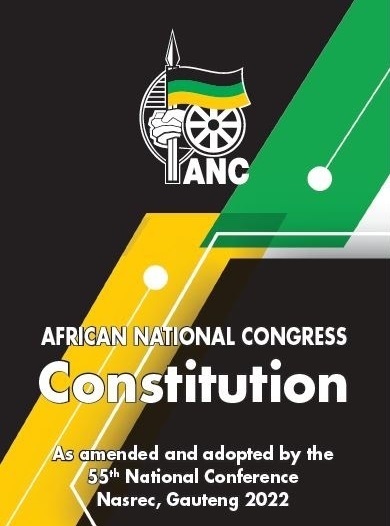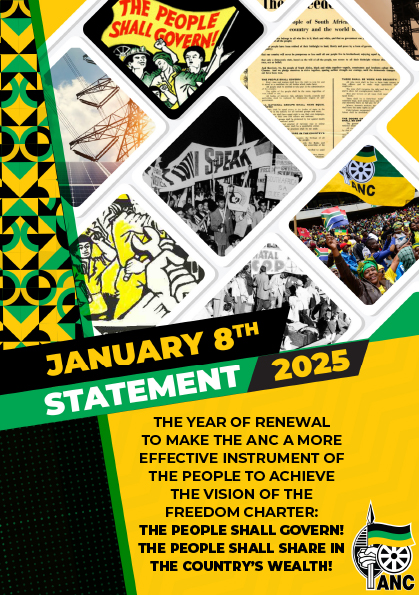Imagine if the founders of the ANC in 1912 had met in Bloemfontein to establish an organisation only to end quibbling between the various provincial Natives National Congresses or to resolve ethnic disputes among the various African groupings! Even this, however, would have been a noble gesture in the wake of the 1906 defeat of the Bhambatha rebellion and the 1910 formation of the all-white Union of South Africa.
The Bhambatha Rebellion had exposed the fatal weakness of disparate ethnic resistance to the united might of the colonizing forces. Effectively, this 1906 defeat put paid to the previous forms of resistance and immediately called forth the challenge to unite the African people across all tribal and ethnic barriers and to forge a concerted national force of resistance. Africans could no longer continue along tribal polities, the time had come for a national consciousness and national forms of organisation.
But, of course, ANC founders were more visionary than that. The very clarion call of their founding Conference was the UNITY of the African people across ethnic and tribal divide for the purpose of establishing a concerted national resistance to colonialism and fighting for the African’s space in the evolving political and economic system following the formation of the Union of South Africa in 1910. From the outset, the ANC embraced an outward focus towards the interests of the masses rather than mere interests, pleasures and comforts of its members and leaders.
For the entire century following this historic conference, the successors of these visionary men and women had understood their historic responsibility as being to lead the oppressed to achieve total liberation. The ANC has always believed that the masses are their own liberators, the masters of their own destiny.
It is this conviction and perspective that has always conditioned it to be outwardly-oriented, focused on the challenges facing the masses and how the best to lead them towards the achievement of this historic mission of total emancipation rather than focusing on its own little, petty fights. No organisation is devoid of those, but the real test is how does the leadership of the masses manage those challenges so that they do not distract from the pursuit of the overall mission.
Singular focus on the all-abiding task of liberation kept the ANC intact and united, even in bleak moments, when the international and domestic balance of forces did not favour the progress of the struggle or when there were subjective, internal, challenges in the movement.
The leadership of the ANC would never allow the movement to stray or be consumed by the distractions, particularly subjective, whatever the personal interests involved. They have always played a pivotal role in drawing the attention of the entire organisation towards the bigger goal either of overcoming the subjective factors or titling the balance of forces towards becoming favourable.
The leadership must act at all times in the best interests of the country and movement, interests beyond our own parochial interests, either as individuals or factions, even as a group. The ANC leadership cannot isolate themselves as a group from society and develop separate interests from those of the country and members of the organisation as a whole.
By our conduct, we must ensure the organisation does not break apart into different splinter groups because of differences of opinion. The maturity of the leadership of the ANC ensures that the ANC, in turn, can play its role as the leader of society. This role cannot be claimed or decreed, it can only be earned in the crucible of the struggle.
The ANC is the educator, liberator and unifier of our society. This responsibility must neither be taken for granted nor abdicated to anyone; without a strong and united ANC, our society itself would split into different factions that would be difficult to reconcile and social progress would be derailed.
A strong and hegemonic ANC is the counter-weight against the forces of neo-liberalism and the only, real, opportunity to establish a cohesive developmental state in South Africa that can forcefully, through overwhelming democratic legitimacy, harness capital, labour and broader civic society towards a common vision of industrialising this country and realising its true and ultimate potential.
When many developmental states in the East have relied on, among others, the cohesive capacity of the state, South Africa has not fully utilised the hegemony – overwhelming popularity – of the ANC to pursue the same goals. Development does not require the ANC to pursue the narrow goals of GDP growth, but those of rapid industrialisation in order to create sustainable employment and development.
Therefore, the ANC leadership cannot afford to think inwardly and be preoccupied with their own internal squabbles or the petty interests of its various factions.
ANC disunity also divides society as it tends to permeate every aspect of national life and even government structures.
Above all else, it may have created conditions for the emergence of a fragmented neo-patrimonial state that is not cohesive, lacks clear developmental goals and power, and in which state resources are used for corrupt purposes by political elites and their business allies. In this context, public resources get squandered and the corrupt do not want the attainment of unity, both at party and state level, because this would bring their pursuits to an end and have far more serious consequences for them.
Accordingly, positions and resources both in the party and state get used as patronage to lock in the loyalty of beneficiaries. Of course, much of this owes from the legacy of the apartheid-colonial economic structure and the type of wealth accumulation pursued in the last 24 years, as well as the ideology and organisation underpinning the new state itself.
Many honest cadres and ordinary people step aside because they have neither the resources nor energies to fight these petty fights. As they do, political opponents opportunistically feed on discontented and disillusioned members and thrive on the movement’s weakness. ANC divisions and in-fighting, and loss of focus on strategic tasks in the past ten years have now led to the loss of support in the metros.
The beneficiaries are the white monopoly capital and their international allies who ensure that whilst the ANC is distracted, racial property relations, the structure of the apartheid-colonial economy based on the minerals-energy complex and the domination of racially-exclusive financial capital remain intact.
Ultimately, whilst a revolutionary theory and party are vital for revolutionary change in society, but so is state ideology and organisation also vital for building the type of state that would not be captured by interest groups and would be able to pursue the objectives of the ANC-led ruling alliance of social forces. Towards that effect, the ANC must remain united, strong and outwardly-focused towards its historic mission of creating a national democratic society.
By Malusi Gigaba, ANC NEC Member and Former ANCYL President





